Common interest communities can be a great experience, offering many amenities which would be too expensive to enjoy on one’s own; pools, recreation centers, parks, playground equipment, tennis courts, trails, security, assigned parking areas, to name a few. However even though sharing these spaces is much cheaper than constructing and maintaining for one’s own personal use, the budgeting for the maintenance and repair/replacement of these common areas remains a difficult task and concept for many in these communities to grasp. Perhaps making an analogy to one of the more unpleasant but easy to understand concept of Dining & Dashing will help.
~ Wikipedia ~ Dining & Dashing: A dine and dash is a form of theft by fraud, in which a patron orders and consumes food and beverages from a restaurant or similar establishment with intent of not paying. The act may involve the customer leaving the restaurant with the intent of evading payment, or less commonly, of the patron eating the food and then stating that they do not have any money. ~ Wikipedia ~
A few years ago, I was at a Board meeting discussing a completed reserve study for a condominium association. The reserve study highlighted significant concerns related to the amount in the reserve account and the amount this association was contributing to the reserve account, both were well below our recommendations and indicated the association would be in a position of likely relying on special assessment, loans, deferred maintenance or a mix of the three in the near future; they simply were not adequately budgeting for upcoming projects. One of the Board members made it a very blunt point to me that the Board had been extremely “frugal” in their decisions over the years and were able to keep HOA dues to a minimum; further stating the community membership was very pleased with the decisions they had made as they had some of the lowest dues in the area. Upon relaying my point that the community Association was projected to run out of money and would need a source of significant funds another Board member stated they were planning to budget in a special assessment in five or six years.
Dining & Dashing – On The Community
This is not an uncommon response after we have completed a reserve study that indicates a community is severely underfunded. We are consultants and often are called in to provide our expertise when the situation has reached a boiling point; large projects expenses, political turmoil in the community, financial insecurity in the budget, etc. However, this particular conversation happened right after I had dinner at a restaurant down the road. I overheard a Waitress telling her Manager that a table had left without paying – Dining & Dashing. She was upset and I thought to myself how could people do such a thing, the restaurant was probably out thirty of forty dollars and the waitress a tip – neither a large amount of money but it was something that hit me in my gut. Then it occurred to me, I see this every day and not with thirty or forty dollars but hundreds of thousands – sometimes millions.
Reserve studies highlight the large project expenses that will occur in a community, there is little argument that these expenses will or will not occur- they do, plain and simple. The timing of them can certainly be up for debate and the timing to budget for them can be discussed, but trying to argue positions such as the roof will last forever, the pool doesn’t need re-plastering or the asphalt roads will not deteriorate, are not realistic – we’ve seen it in thousands of communities – over and over – projects expenses will occur and a Community & Board need to make adequate budgeting decisions to pay for them. From our experiences Board Members have a fairly realistic understanding that common areas will deteriorate and costs will be significant, however rarely we see them taking on the difficult task of convincing the community to adequately budget for these projects even after a reserve study highlights the expenses and projected timelines.
Even after a Board orders a reserve study and learns of the common area expenses, approximately when they will occur and approximately how much they will cost, they all too often still choose to severely underfund the reserve account. Hmmm. This is sounding very similar to the unsettling Dining & Dashing way of dining.
An argument that can be made is that an association is budgeting for these expenses just not quite enough – a far cry from “Dining & Dashing”. Unfortunately, that argument is not accurate as we have found most communities to be in a poor funding position, below a 30% funded level (Percent Funded = how much they actually have in the reserve account versus an ideal amount to be on track). This would be like the Diners in the above example having less than $12 on a $40 bill – no tip considered… mathematically they are much closer to skipping out on the bill than trying to pay for it. Now does a community have to be 100% Funded – absolutely not, but when the majority of communities are severely underfunded and many knowingly keep due lower than they should be, planning on things like special assessments or loans years down the road, they really are just saying "we would like to use the community common areas but lets not pay for them".
And it gets worse – when a special assessment or loan is budgeted into the long term planning, a Community & Board is simply stating "we would like to use the common areas now but have someone else pay for it later" – akin to the above diners not only Dining & Dashing but requiring the next family, who happens to sit at the table, to foot the bill of both meals. Unfairness at its highest level but which has become common as the typical condominium community has aged to a point that significant project expenses have come up. Buyers coming into these communities now are being hit with special assessments & loans based on past use/deterioration of the common areas.
Tough Decisions
So, what is a Board to do? A community may have a current poor funding level but that doesn’t mean they have to stay there. It will absolutely require difficult decisions to be made; raising HOA dues, possibly implement special assessments and making more adequate budgeting decisions rather than those that keep the HOA dues artificially low. Having a reserve study completed is a great first step to understand what costs and projects are projected to occur but even this will not help if there is a view that the cost can simply be paid for or budgeted for at a later date. There really needs to be a shift in the frame of reference for Board members – reserve funds are not for future expenses but are to offset current use/deterioration of the common areas. By relaying that message to the community and taking the advice of professionals, who really want to see the community succeed and flourish, a community can certainly improve its financial position and pride itself on not having the lowest HOA dues but rather but the most prepared and fair to its membership. We have seen this success take hold with many of our long-term Clients who have been diligent year after year across changing Boards and membership.




